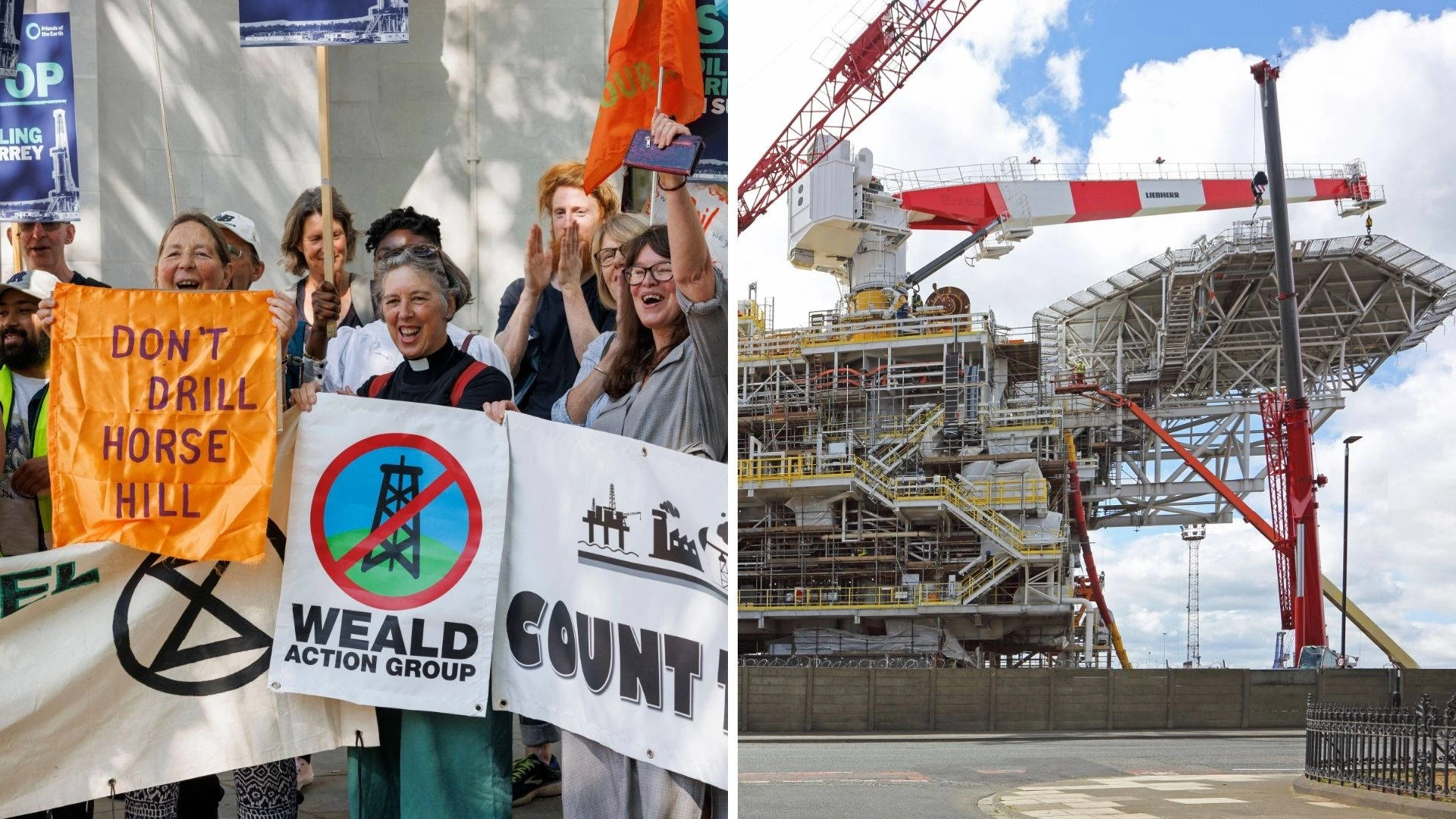UK judges block new oil site over indirect climate impact

Stay tuned with 24 News HD Android App

The UK Supreme Court ruled on Thursday against the development of a new oil well site in southern England, in a verdict campaigners said could affect future fossil fuel projects.
Sarah Finch challenged a decision to allow the expansion at Horse Hill near London Gatwick Airport in 2019, arguing that indirect emissions had not been taken into account.
"I am absolutely over the moon," she said after the judgement. "This is a welcome step towards a safer, fairer future."
Finch and fellow campaigners argued the development was unlawful because the environmental impact assessment (EIA) only took into account the impact of extracting the oil, and not the effect of emissions produced when the oil was burned.
UK legislation requires that EIAs must be conducted for all development projects likely to significantly impact the environment.
But such assessments do not always account for indirect "downstream" emissions.
The Supreme Court justices ruled three to two in favour of Finch, whose case was previously dismissed by two lower courts.
The court said the council's decision was unlawful "because the emissions that will occur when the oil produced is burnt as fuel are within the scope of the EIA required by law".
That effectively quashes permission to build four new oil wells and 20 years of oil production at the site.
Under the plans, the site, discovered in 2015 and run by Horse Hill Developments, would have produced around 3.3 million tonnes of oil and 10 million tonnes of carbon dioxide emissions.
In the judgement, judge George Leggatt said "it seems to me plain" that emissions created by burning oil extracted at the site "are effects of the project".
He stated that it was "not a valid ground" to argue that the oil being refined elsewhere before being burned meant it did not need to be considered as part of the environmental assessment.
Friends of the Earth, which supported the case, called the ruling "groundbreaking" and said it could have "profound implications" for new fossil fuel projects, including a coal mine in northwest England and two proposed North Sea oil and gas fields.
Those projects are also subject to legal challenges.
Friends of the Earth Lawyer Katie de Kauwe said the ruling was "a watershed moment in the fight to stop further fossil fuel extraction projects in the UK and make the emissions cuts needed to meet crucial climate targets".
She added: "The highest court in the country has ruled that planning permission for an oil project was granted unlawfully because there was no consideration of its full climate impact.
"This judgement will make it harder for new fossil fuel projects to go ahead. They can no longer claim that downstream emissions are someone else's problem."
